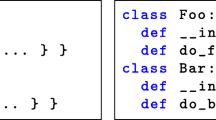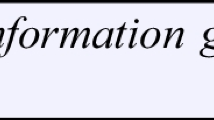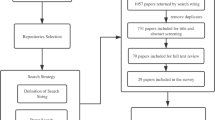Abstract
Adaptive random testing (ART) achieves better failure-detection effectiveness than random testing by increasing the diversity of test cases. However, the intention of ensuring even spread of test cases inevitably causes an overhead problem. Although two basic forgetting strategies (i.e. random forgetting and consecutive retention) were proposed to reduce the computation cost of ART, they only considered the temporal distribution of test cases. In the paper, we presented a distance-aware forgetting strategy for the fixed size candidate set version of ART (DF-FSCS), in which the spatial distribution of test cases is taken into consideration. For a given candidate, the test cases out of its “sight” are ignored to reduce the distance computation cost. At the same time, the dynamic adjustment for partitioning and the second-round forgetting are adopted to ensure the linear complexity of DF-FSCS algorithm. Both simulation analysis and empirical study are employed to investigate the efficiency and effectiveness of DF-FSCS. The experimental results show that DF-FSCS significantly outperforms the classical ART algorithm FSCS-ART in efficiency, and has comparable failure-detection effectiveness. Com-pared with two basic forgetting methods, DF-FSCS is better in both efficiency and effectiveness. In contrast with a typical linear-time ART algorithm RBCVT-Fast, our algorithm requires less computational overhead and exhibits the similar failure-detection capability. In addition, DF-FSCS has more reliable performance than RBCVT-Fast in detecting failures for the programs with high-dimensional input domain.
Similar content being viewed by others
References
Hamlet R. Random testing. In: Marciniak J J, ed. Encyclopedia of Software Engineering. 2nd ed. Chichester: John Wiley and Sons, 2002. 1507–1513
Chen T Y, Leung H, Mak I K. Adaptive random testing. In: Proceedings of the 9th Asian Computing Science Conference, Chiang Mai, 2004. 320–329
Chen T Y, Kuo F-C, Merkel R G, et al. Adaptive random testing: the ART of test case diversity. J Syst Softw, 2010, 83: 60–66
Orso A, Rothermel G. Software testing: a research travelogue (2000-2014). In: Proceedings of Future of Software Engineering (FOSE’14), Hyderabad, 2014. 117–132
Chen T Y, Kuo F-C, Towey D, et al. A revisit of three studies related to random testing. Sci China Inf Sci, 2015, 58: 052104
Shi Q, Chen Z, Fang C, et al. Measuring the diversity of a test set with distance entropy. IEEE Trans Reliab, 2016, 65: 19–27
Feldt R, Poulding S, Clark D, et al. Test set diameter: quantifying the diversity of sets of test cases. In: Proceedings of the 9th IEEE International Conference on Software Testing, Verification and Validation (ICST’16), Chicago, 2016. 223–233
Chen T Y, Merkel R G. An upper bound on software testing effectiveness. ACM Trans Softw Eng Methodol, 2008, 17: 1–27
Chen T Y. Fundamentals of test case selection: diversity, diversity, diversity. In: Proceedings of the 2nd International Conference on Software Engineering and Data Mining (SEDM’10), Chengdu, 2010. 723–724
Mariani L, Pezzè M, Zuddas D. Recent advances in automatic black-box testing. Adv Comput, 2015, 99: 157–193
Arcuri A, Briand L. Adaptive random testing: an illusion of effectiveness? In: Proceedings of the 2011 International Symposium on Software Testing and Analysis (ISSTA’11), Toronto, 2011. 265–275
Chan K P, Chen T Y, Towey D. Forgetting test cases. In: Proceedings of the 30th Annual International Computer Software and Applications Conference (COMPSAC’06), Chicago, 2006. 485–494
Rigaux P, Scholl M, Voisard A. Spatial Databases: With Application to GIS. San Francisco: Morgan Kaufmann Publishers, 2002. 267–309
Shahbazi A, Tappenden A F, Miller J. Centroidal voronoi tessellations—a new approach to random testing. IEEE Trans Softw Eng, 2013, 39: 163–183
Finelli G B. NASA software failure characterization experiments. Reliab Eng Syst Saf, 1991, 32: 155–169
Bishop P G. The variation of software survival time for different operational input profiles. In: Proceedings of the 23rd International Symposium on Fault-Tolerant Computing (FTCS-23), Toulouse, 1993. 98–107
Schneckenburger C, Mayer J. Towards the determination of typical failure patterns. In: Proceedings of the 4th International Workshop on Software Quality Assurance (SOQUA’07), Dubrovnik, 2007. 90–93
Chen T Y, Tse T H, Yu Y T. Proportional sampling strategy: a compendium and some insights. J Syst Softw, 2001, 58: 65–81
Chen T Y, Huang D H. Adaptive random testing by localization. In: Proceedings of the 11th Asia-Pacific Software Engineering Conference (APSEC’04), Busan, 2004. 292–298
Chen T Y, Kuo F-C, Merkel R. On the statistical properties of testing effectiveness measures. J Syst Softw, 2006, 79: 591–601
Kuo F-C. On adaptive random testing. Dissertation for the Doctoral Degree. Melbourne: Swinburne University of Technology, 2006. 24–26
ACM. Collected Algorithms from ACM: Volume 1, Algorithms 1–220. New York: Association for Computer Machinery, 1980
Press W H, Teukolsky S A, Vetterling W T, et al. Numerical Recipes: The Art of Scientific Computing. 3rd ed. Cambridge: Cambridge University Press, 2007
Jia Y, Harman M. An analysis and survey of the development of mutation testing. IEEE Trans Softw Eng, 2011, 37: 649–678
Chen T Y, Kuo F-C, Merkel R G, et al. Mirror adaptive random testing. Inform Softw Tech, 2004, 46: 1001–1010
Chen T Y, Merkel R, Eddy G, et al. Adaptive random testing through dynamic partitioning. In: Proceedings of the 4th International Conference on Quality Software (QSIC’04), Braunschweig, 2004. 79–86
Chen T Y, Huang D, Zhou Z. On adaptive random testing through iterative partitioning. J Inf Sci Eng, 2011, 27: 1449–1472
Chow C, Chen T Y, Tse T H. The ART of divide and conquer: an innovative approach to improving the efficiency of adaptive random testing. In: Proceedings of the 13th International Conference on Quality Software (QSIC’13), Nanjing, 2013. 268–275
Barus A C, Chen T Y, Kuo F-C, et al. A cost-effective random testing method for programs with non-numeric inputs. IEEE Trans Comput, 2016, 65: 3509–3523
Acknowledgements
This work was supported by National Natural Science Foundation of China (Grant No. 61462030), Australian Research Council Linkage Grant (Grant No. LP100200208), Natural Science Foun-dation of Jiangxi Province (Grant Nos. 20162BCB23036, 20151BAB207018), and Science Foundation of Jiangxi Educational Committee (Grant No. GJJ150465).
Author information
Authors and Affiliations
Corresponding author
Additional information
Conflict of interest
The authors declare that they have no conflict of interest.
Rights and permissions
About this article
Cite this article
Mao, C., Chen, T.Y. & Kuo, FC. Out of sight, out of mind: a distance-aware forgetting strategy for adaptive random testing. Sci. China Inf. Sci. 60, 092106 (2017). https://doi.org/10.1007/s11432-016-0087-0
Received:
Accepted:
Published:
DOI: https://doi.org/10.1007/s11432-016-0087-0




